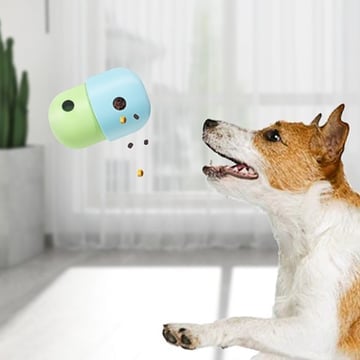The Basics of Silicon Dioxide
Silicon dioxide, commonly referred to as silica, is a naturally occurring compound found in numerous products. It can be produced synthetically or through natural processes, such as volcanic activity and water erosion. This compound is commonly used in animal feed, pet foods, and even supplements. But what does it mean for pets and their safety?
What is Silicon Dioxide Used for in Pet Products?
Silicon dioxide is used as an anti-caking agent in pet food and animal feed. It helps to prevent clumping and keep the product flowing smoothly. Additionally, silicon dioxide can be used as a supplement to help pets maintain healthy joints and bones, among other benefits.
Is Silicon Dioxide Safe for Pets?
Silicon Dioxide is safe for pets when used in the appropriate amounts. The U.S. Food and Drug Administration (FDA) has deemed silicon dioxide as Generally Recognized as Safe (GRAS) status, which means that it is generally accepted as safe for consumption by humans and animals. However, pets with certain medical conditions or sensitivities may not be able to handle the compound well. It is recommended to consult with a veterinarian before giving silicon dioxide supplements to your pets.
What are the Potential Risks?
When used in excess, silicon dioxide can cause gastrointestinal upset in pets, including diarrhea, vomiting, and abdominal pain. Other potential risks include damage to the liver, kidneys, and respiratory system.
Can Silicon Dioxide Cause Allergic Reactions in Pets?
While it is possible for pets to have an allergic reaction to silicon dioxide, it is relatively uncommon. Pets with a silica allergy may exhibit symptoms similar to other allergies, such as skin irritations, itching, and respiratory problems.
How Much Silicon Dioxide is Safe for Pets?
The amount of silicon dioxide that is safe for pets varies depending on the animal's size, breed, and individual health. The FDA has established guidelines for the maximum amount of silicon dioxide that can be used in pet food, which is 2% of the overall product. It is important to follow the recommended dosage instructions when giving supplements to your pets.
What are the Alternatives to Silicon Dioxide?
There are several alternatives to silicon dioxide that can be used as anti-caking agents in pet food, including powdered cellulose, rice hulls, and magnesium stearate. These alternatives are generally considered safe for pets and are often used interchangeably with silicon dioxide.
How Can Pet Owners Ensure the Safety of their Pets?
Pet owners can ensure the safety of their pets by purchasing products from reputable brands that follow FDA guidelines and have a good track record of quality and safety. It is also important to monitor your pet's intake of supplements and food to avoid overconsumption.
Conclusion
Silicon dioxide is a common ingredient in pet food, feed, and supplements. While it is generally safe for pets, it is important to follow recommended dosage instructions and consult a veterinarian before giving supplements to your pets. Pet owners should also look for alternatives and purchase products from reputable brands to ensure their pet's safety.
Quote Inquiry
Contact Us Now!

